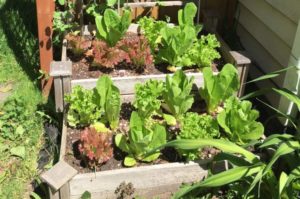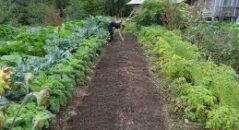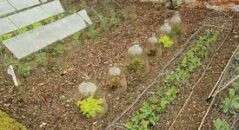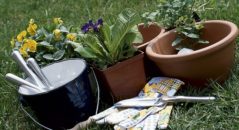Organic gardening involves growing fruits and vegetables without the use of chemical fertilizers. It involves building soil naturally for supporting the healthy growth of plants. Additives and chemical fertilizers damage the soil’s ability of providing the nutrients required by plants for resisting insect attacks, diseases and stress. Unhealthy diseases and plants are the result of soil depletion because of the loss of nutrients. Pesticides and chemical fertilizers together result in soil depletion causing stressed plants and infertile soil. Microbial activity and organic fertilizers together result in healthy plants and soil fertility.

How to Build Soil in the Garden Organically?
A healthy and beautiful organic garden generally produces plants that are very strong and the ones that have the ability of withstanding adverse conditions. Sustainable organic gardening is about organic soil building that can also help people in sustaining their individual lives. Some of the best organic nutrients that can be used for organic soil-building are as follows:
• Humus: This is organic matter at different phases of decay like rotted sawdust, oak leaf mold and peat moss. Humus helps in increasing the water-holding capacity of soil; in modifying the soil structure; in stimulating plant growth’ in allowing root penetration and in correcting soil imbalances. Animal manures and compost are good sources of humus.
• Nitrogen: Nitrogen contains proteins and it also serves as one of the best food sources for the compost piles. Nitrogen also helps in stimulating green growth in plants. Blood meal, alfalfa meal, fish emulsion and fish meal are good sources of iron.
• Phosphorous: Phosphorous helps in stimulating the growth of roots and in promoting seed and fruit maturation. Bone meal and soft rock phosphate are good sources of phosphorous. Purple leaves, skinny stems, late fruit maturity and brittle roots are the signs of phosphorous deficiencies in trees and plants.
• Potassium: Potassium helps in promoting disease resistance and plant vitality. Good sources of potassium are Greensand, wood ashes and sulfate of potash. Yellowing of the lower leaves in plants and poor growth of the root are tell-tale signs of potassium deficiencies.
• Calcium: This is necessary for the integrity of plant cell wall, leaf growth and root development. Weak roots and stems and deformed branches and leaves are the common signs of calcium deficiencies in plants and trees. Gypsum is one of the best sources of calcium.
• Magnesium: Magnesium is important for green leaf and chlorophyll development. Signs of deficiencies include green veins and pale green leaves.
• Soil Sulphur: This nutrient can effectively be used for lowering pH levels in alkaline soil. It also helps in stimulating the microbial life of soil.
• Trace Minerals: These are found in kelp meal, compost, seaweed meal, greensand and algae meal.
Conclusion
Procedures like composting, planting cover crops, crop rotation and offering good drainage can also be of good help in increasing soil fertility for hassle-free and beneficial organic gardening.




